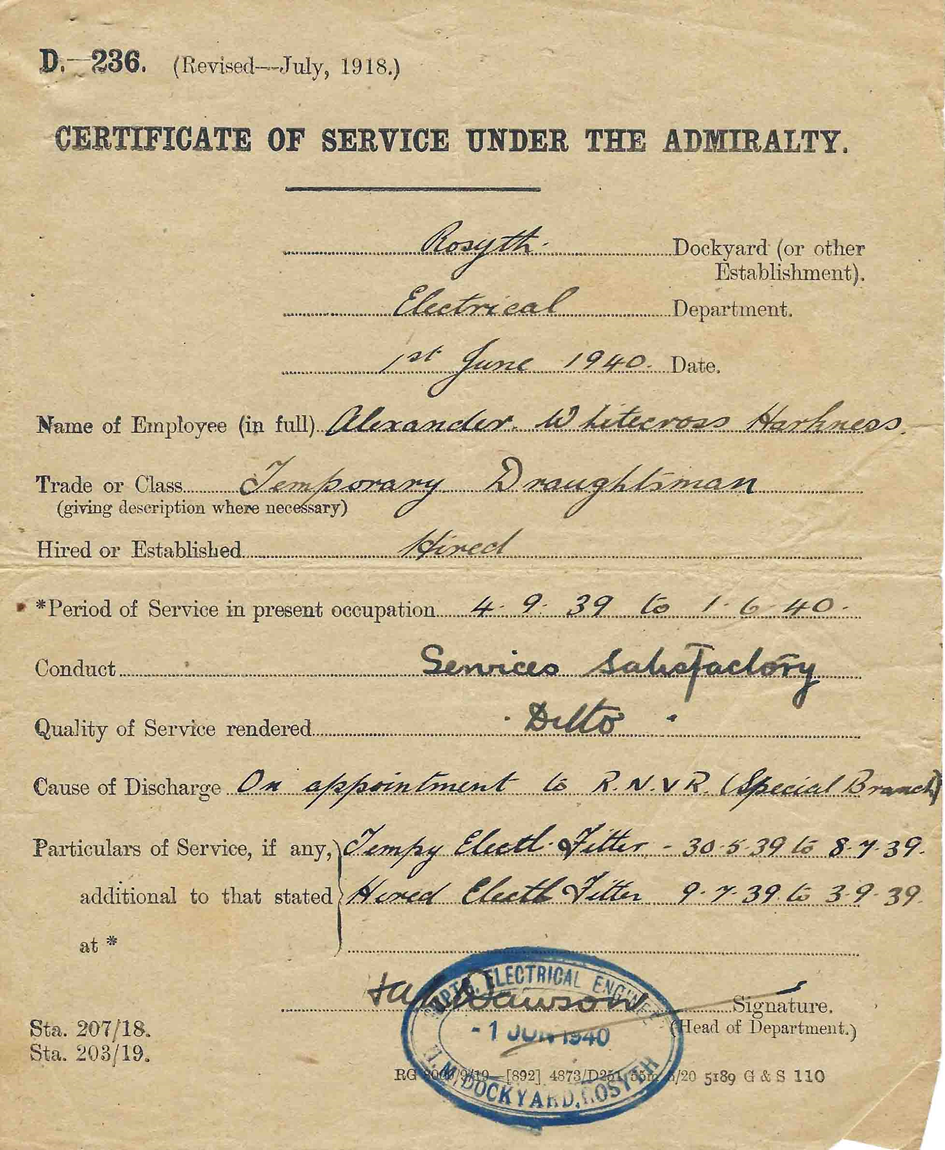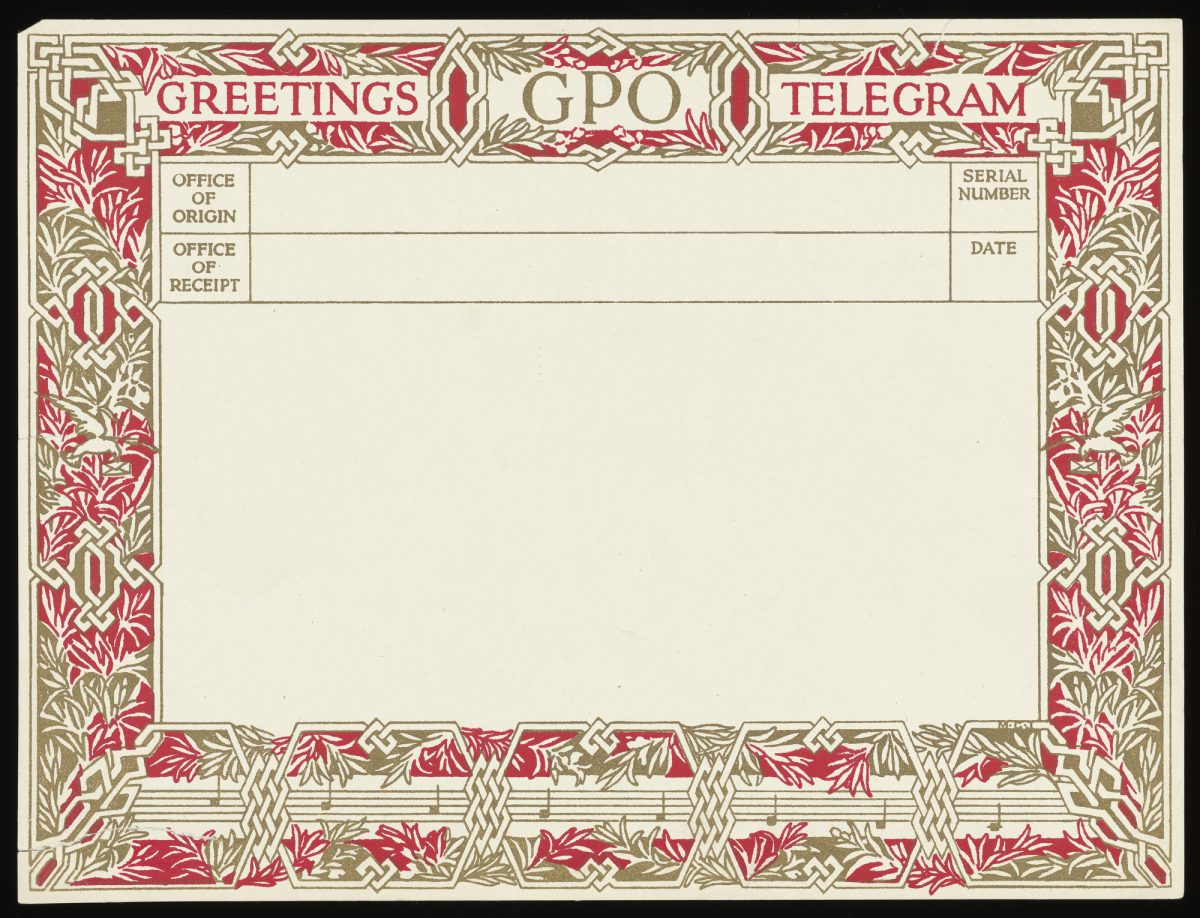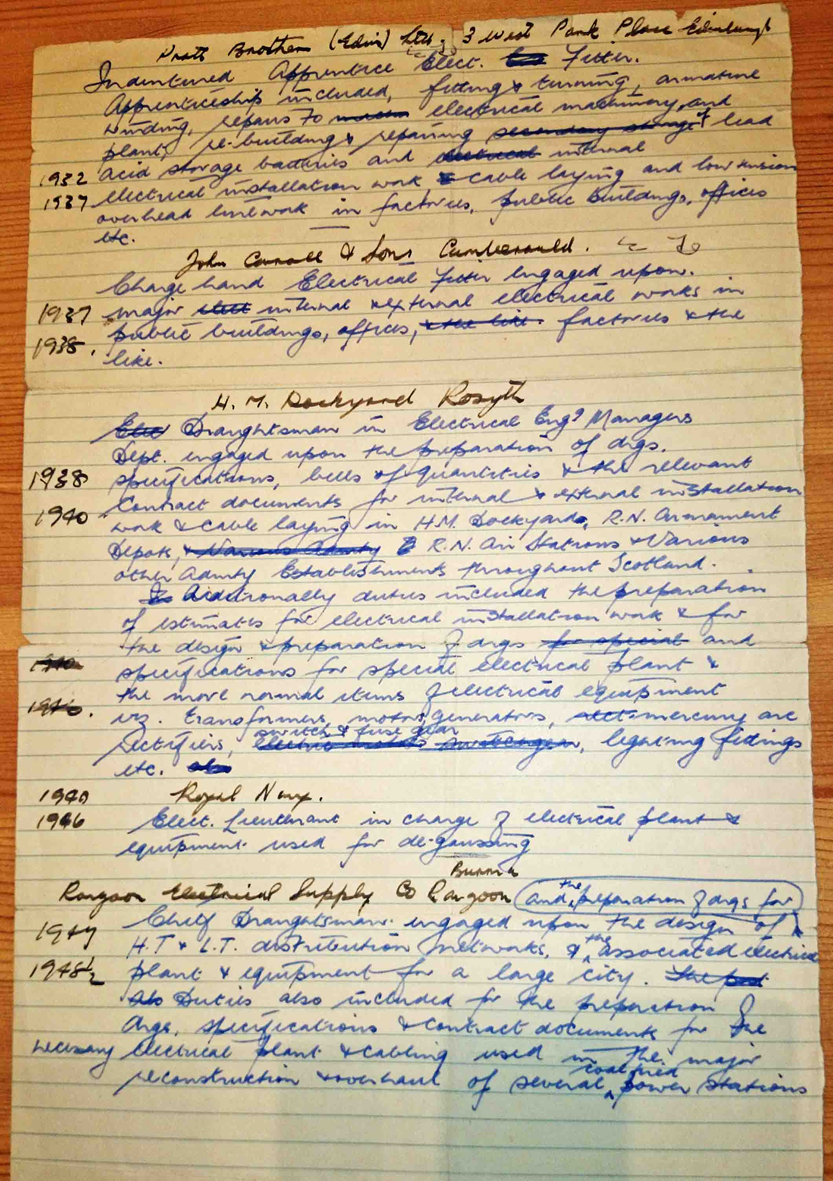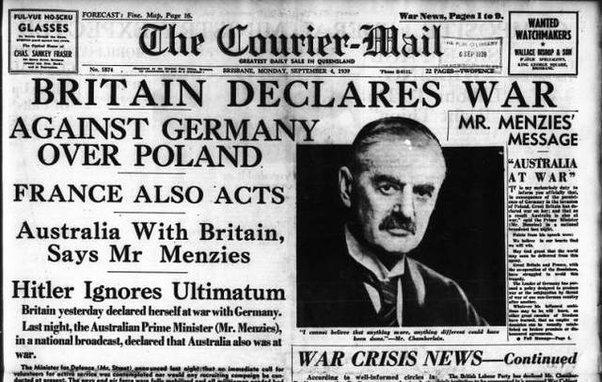The Admiralty, H.M. Dockyard, Rosyth
My father worked as a civilian for the Admiralty at H.M. Dockyard at Rosyth in the east of Scotland before he met my mother. This also implies that my father worked at the naval dockyard for a period prior to the outbreak of the war.1
If we think about it, there seems to be some confusion here as his CV shows he worked at H. M. Dockyard Rosyth from 1938-1940. He couldn’t possibly be working there in 1938 while working for Pratt Brothers, Lockhart & MacNab (not mentioned on the CV), and John Carroll; and during the first few months of 1939 while working for Burgess & Speedie (also not mentioned on the CV).
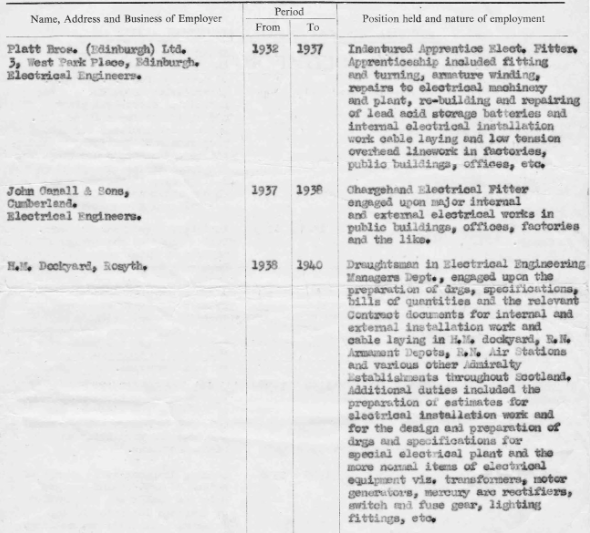
You can see his ‘Certificate of Service Under The Admiralty’ at the top of this post. It indicates that he worked there from 30 May 1939 to 1 June 1940. One possible explanation is that the last three companies were actually subcontractors for H.M. Dockyard, Rosyth. This seems plausible as these three companies were located within the Stirling area, not too far from Rosyth. For the sake of ‘convenience’, my father has probably written his ‘own’ version of his work experience prior to joining the R.N.V.R, without any substantial explanation to back it up. This could be an oversight or a case of jiggery-pokery; knowing my father, I suspect the latter.
My mother used to say that if you don’t blow your own trumpet, no one else will.2 My father takes this philosophy one step further; like Gatsby, he has ‘reinvented’ himself.3 Of course, when unemployment is high, employers get picky and scrutinize CVs with a magnifying glass. However, when the demand for labour and soldiers is high during wartime, such magnifying glasses are disregarded. When there is high demand for labour, employers only give CVs a cursory glance and have already made up their minds to hire the person in question before even looking at the CV.
1 British rearmament was a period in British history, between 1934 and 1939, when a substantial programme of re-arming the United Kingdom was undertaken. Re-armament was necessary, because defence spending had gone down from £766 million in 1919–20, to £189 million in 1921–22, to £102 million in 1932. https://en.wikipedia.org/wiki/British_re-armament Read 12 August 2022.
2 blow one’s own trumpet idiom; British, informal: to talk about oneself or one’s achievements especially in a way that shows that one is proud or too prou; “He had a very successful year and has every right to blow his own trumpet.”
3 Fitzgerald, F. Scott. The Great Gatsby. 1925.
